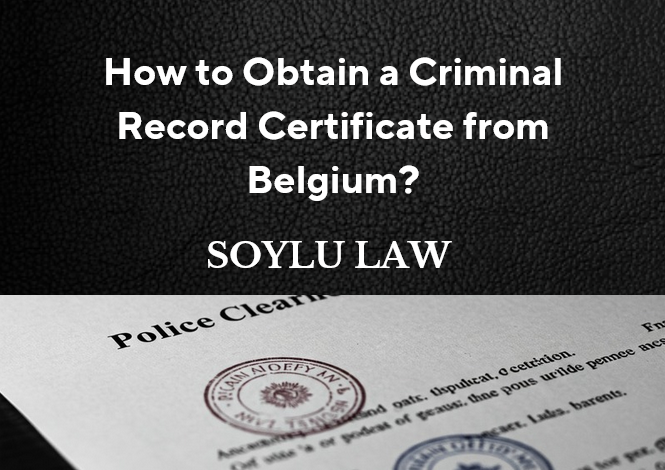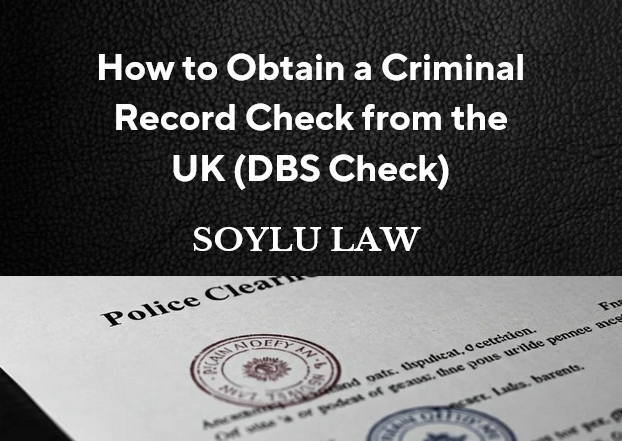In today’s globalized society, the need for official documentation verifying one’s criminal history has become increasingly crucial. The Netherlands, known for its efficient bureaucratic systems and digital governance, maintains a sophisticated process for obtaining criminal record certificates. Whether for employment, immigration, or other official purposes, understanding the Dutch criminal record system is essential for both residents and international applicants. The Certificate of Conduct (VOG) serves as a vital document in this process, representing an individual’s standing within the legal system.
In this guide, we will explore the detailed process of obtaining a criminal record certificate from the Netherlands, covering everything from initial application to final receipt and potential challenges.
How to Obtain a Criminal Record Certificate from the Netherlands?
Introduction
a. Understanding Criminal Record Certificates
In today’s interconnected world, criminal record certificates have become increasingly vital for various aspects of life. These documents serve as official proof of an individual’s legal standing and are frequently required for employment, immigration, and educational purposes. The significance of these certificates has grown substantially as more organizations and institutions prioritize background verification in their decision-making processes.
b. The Dutch Criminal Record System
The Netherlands maintains one of Europe’s most sophisticated and digitalized criminal record systems. Under the management of the Dutch Ministry of Justice, this system integrates data from various judicial authorities across the country. The system operates within a strict framework of privacy laws and must comply with both Dutch national regulations and European Union standards. All records are maintained for a period of 20 years after the final judgment, though serious offenses may be retained for longer periods.
c. Available Certificate Types
Within the Dutch system, several types of certificates are available to meet different requirements. The most commonly requested document is the Certificate of Conduct (Verklaring Omtrent het Gedrag – VOG), but other documents include criminal record extracts and judicial documentation. Each type serves specific purposes and comes with its own set of application procedures and eligibility criteria.
What is a Certificate of Conduct (VOG)?
a. Definition and Core Purpose
A Certificate of Conduct, known in Dutch as Verklaring Omtrent het Gedrag (VOG), is an official document issued by the Justis Department of the Dutch Ministry of Justice and Security. This document essentially serves as a statement of good behavior, indicating whether or not an individual has any criminal records that would be relevant to their intended purpose. The certificate must be processed within 4 weeks of application submission, though most cases are completed more quickly.
b. VOG Characteristics
The VOG differs from standard criminal record certificates in several key aspects. Unlike a complete criminal history, it provides a targeted screening based on the specific purpose for which it’s requested. The screening process considers only relevant offenses that could impact the individual’s ability to perform certain roles or responsibilities. The certificate is valid for 6 months from the date of issue, though some organizations may require more recent documentation.
c. Usage Requirements
VOG certificates are required in numerous situations within Dutch society. Common scenarios include employment applications, particularly in sectors involving work with vulnerable populations, such as children or elderly care. They’re also frequently needed for visa applications, professional licensing, and volunteer work. The specific type of VOG required depends on the position or purpose, with different screening profiles applied based on the nature of the role or activity.
Application Process
Online Application
a. DigiD System Navigation
The primary method for requesting a VOG is through the Dutch government’s DigiD digital identification system. This secure platform requires users to first obtain their DigiD credentials, which typically takes 5 working days after initial registration. The online system operates 24/7 and provides a more streamlined experience compared to in-person applications.
b. Documentation Requirements
For online applications, several key documents must be prepared in advance. These include a valid form of identification (passport or EU identity card), a formal request letter from the requiring organization, and your BSN number (Dutch social security number). The system also requires applicants to provide detailed information about their intended purpose for the VOG, which directly influences the screening profile applied.
c. Processing Details
Online applications are typically processed within 2-4 weeks. The standard fee is 41.35 euros as of 2024, payable through various online payment methods including iDEAL, credit card, or bank transfer. Applicants receive automatic updates about their application status through their registered email address and can track progress through the DigiD portal.
In-Person Application
a. Municipality Procedures
Visiting your local gemeente (municipality) requires advance preparation. Most municipalities operate on an appointment-based system, requiring booking at least 24 hours in advance. The process typically takes 30 minutes to complete when all required documentation is properly prepared.
b. Required Documentation
When applying in person, you must bring your valid passport or EU identity card, the official request letter from the requiring organization, and your BSN number. Some municipalities may also request proof of residence if you’ve recently moved. All documents must be original copies; photocopies are not accepted even if notarized.
c. Payment Options
The in-person application fee is identical to the online fee at 41.35 euros. Municipalities typically accept various payment methods including debit cards, credit cards, and sometimes cash, though this varies by location. Some municipalities may add a small additional fee for processing the application in person.
Special Circumstances
International Applications
a. Non-Resident Procedures
For individuals applying from outside the Netherlands, the process requires additional steps. Applications must be submitted through the Dutch embassy or consulate in your country of residence. The processing time extends to 4-6 weeks due to international handling requirements.
b. Authentication Requirements
International applications require document legalization through the appropriate channels. This includes having documents authenticated with an Apostille if your country is a member of the Hague Convention, or through consular legalization if not. Original documents must be accompanied by certified translations if not in Dutch, English, German, or French.
c. Translation Specifications
All supporting documents in languages other than Dutch, English, German, or French must be translated by a sworn translator recognized by Dutch authorities. The translation must be attached to the original document with an official seal, and both the original and translation must be submitted together.
Urgent Requests
a. Expedited Processing
For urgent cases, the Dutch authorities offer an expedited service that can process applications within 5 working days. This service must be specifically requested and requires clear justification for the urgency.
b. Additional Requirements
Expedited processing incurs an additional fee of 48.60 euros on top of the standard application fee, bringing the total to 89.95 euros. Applicants must provide documentation supporting their need for urgent processing, such as job offer letters with immediate start dates or visa application deadlines.
c. Eligibility Conditions
Not all applications qualify for expedited processing. The justification must meet specific criteria established by the Justis Department. Common acceptable reasons include imminent job starts, urgent visa requirements, or legal proceedings with strict deadlines.
After Submission
Processing Timeline
a. Standard Duration Phases
The VOG application process follows a structured timeline managed by the Justis Department. Standard applications typically complete processing within 2-4 weeks from submission. This period includes an initial verification phase lasting 3-5 business days, followed by a thorough background screening that may take up to 15 business days. During peak periods, particularly around academic years or common employment transition times, processing may extend to the full 4-week maximum.
b. Status Monitoring Methods
Applicants can track their application status through multiple channels. The primary method is the online portal accessible through DigiD, which provides real-time updates. Additionally, the system sends automated email notifications at key stages of the process. For applications submitted through municipalities, status inquiries can be made directly through the local gemeente office using the provided reference number.
c. Notification Procedures
The system employs a comprehensive notification framework to keep applicants informed. Automatic alerts are sent at three crucial stages: upon initial receipt of the application, when the screening process begins, and when the final decision is made. These notifications are delivered through both email and the online portal, ensuring applicants don’t miss important updates.
Receipt and Validity
a. Document Collection
Once approved, the VOG is sent via secured post to the registered address. Collection procedures vary based on the application method. For online applications, the document is delivered directly to your home address within 3-5 business days after approval. In-person applicants may need to collect their VOG from the municipality where they applied, typically within 5 business days of notification.
b. Validity Duration
The VOG maintains its official validity for 6 months from the date of issue. However, some organizations may require a more recent certificate depending on their specific policies. The document includes clear marking of both the issue date and expiration date. It’s important to note that the validity period cannot be extended; a new application is required after expiration.
c. International Recognition
The Dutch VOG enjoys broad recognition internationally, particularly within the European Union. For use outside the EU, additional legalization steps may be required. The document comes with an international format option that includes English translations of key information. Some countries may require additional authentication through their embassies or specific government departments.
Common Challenges and Solutions
Language Barriers
a. Language Options
The VOG application system supports multiple languages, with interfaces available in Dutch and English by default. The actual certificate is issued in Dutch, but can include an English translation upon request. For online applications, the DigiD system provides comprehensive language switching options throughout the process.
b. Translation Services
Official translations can be obtained through certified translators recognized by Dutch authorities. The translation must be completed by a translator registered in the Rbtv (Register beëdigde tolken en vertalers). The translation process typically takes 3-7 business days and incurs additional costs based on the translator’s rates.
c. Support Resources
Various support services are available to assist non-Dutch speakers. These include multilingual helpdesks, online chat support, and dedicated email assistance. Response times for support services are typically within 24-48 hours, with urgent queries handled more quickly during business hours.
Technical Issues
a. DigiD Challenges
Common technical difficulties often relate to the DigiD system, including account activation problems and login issues. The most frequent challenges involve verification code delivery, browser compatibility, and session timeouts. The DigiD helpdesk provides support for these issues with a typical response time of 1-2 business days.
b. Alternative Methods
When technical issues persist, several alternative application methods are available. These include switching to in-person applications at local municipalities, using the paper-based application system, or applying through an authorized representative. Each alternative method has its own processing timeline and specific requirements.
c. Technical Assistance
Technical support is available through multiple channels. The primary support line operates during business hours (9:00-17:00 CET), offering assistance in both Dutch and English. Additional support options include an extensive online FAQ, troubleshooting guides, and a dedicated technical support email system with a 48-hour response guarantee.
Legal Framework and Privacy
Data Protection
a. GDPR Implementation
The VOG system operates under strict European Union GDPR guidelines and Dutch privacy laws. The Justis Department, as the primary data controller, maintains rigorous data protection protocols that govern every aspect of information handling. All personal data processed during VOG applications is protected by technical safeguards and organizational measures designed to prevent unauthorized access. The system undergoes regular security audits every 3 months to ensure compliance with evolving privacy standards.
b. Information Management
Data handling follows a comprehensive security framework that includes multiple protection layers. All submitted information is stored in encrypted databases with access restricted to authorized personnel only. The retention period for application data is strictly limited to 6 months after the final decision, after which non-essential data is automatically deleted through secure protocols. Essential records are maintained for a maximum of 7 years as required by Dutch law.
c. Applicant Rights
Under GDPR regulations, applicants possess several fundamental rights regarding their personal data. These include the right to access their information, request data correction, and receive a complete data export within 30 days of request. Applicants can also exercise their right to be forgotten, though this may affect the validity of issued certificates. The system maintains a detailed audit trail of all data access and modifications, which applicants can review upon request.
Appeals Process
a. Rejection Management
When a VOG application is denied, applicants receive a detailed rejection notification outlining the specific reasons for the decision. This document includes information about relevant criminal records or other factors that influenced the outcome. Applicants have 28 days from the rejection date to initiate an appeal. During this period, they can request a complete case file review to better understand the decision-making process.
b. Review Procedures
The appeals process follows a structured three-tier system. The first level involves an administrative review completed within 14 days, where a different officer examines the original decision. If unsuccessful, applicants can proceed to a formal objection procedure lasting up to 42 days, which includes the opportunity for a personal hearing. The final tier involves appealing to the Administrative Court, which typically takes 3-6 months to reach a decision.
c. Support Options
Various forms of legal assistance are available throughout the appeals process. Applicants can seek help from legal aid clinics, private attorneys, or specialized VOG consultants. Many municipalities offer free initial legal consultations for VOG appeals. For qualifying individuals, the Dutch government provides subsidized legal assistance through the Legal Aid Board, covering up to 80% of the legal costs. Support services must be requested within 14 days of receiving the rejection notice to ensure adequate preparation time for the appeal.
For more help or consultation on this topic, you can contact us.



